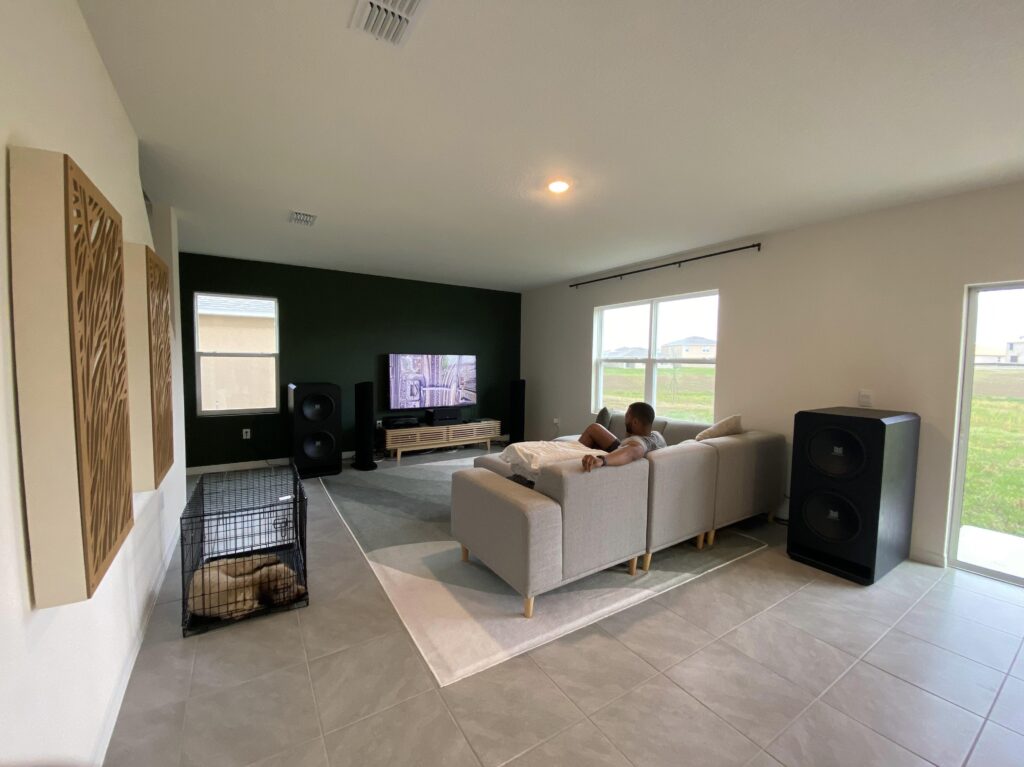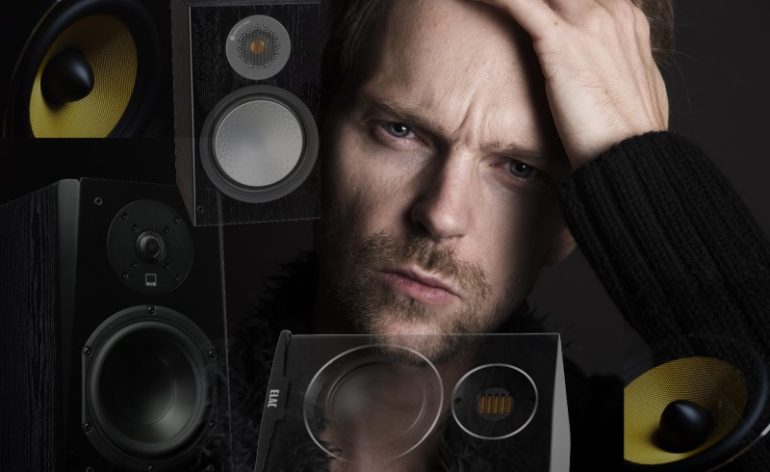Why Do My New Speakers Sound Terrible?
This is the scenario, you get a whole new set of speakers. We are talking new bookshelves (or towers), center, surrounds, and dual subwoofers. You get them home, set them up, run your room correction…and are completely unimpressed by the new speakers. Surely you didn’t just waste a ton of money on new speakers to go backward? Or did you? Today we ask – why do my new speakers sound terrible? The answer might surprise you. Let’s discuss.
Reason One – Psychology
We have often spoken about the psychology of home theater. You did a thing, so you are expecting to hear a difference. Most of it is psychoacoustics, but in the case of new speakers, there is some merit to this.

If you are moving from a speaker that is overly bright (exaggerated bass and treble) to something more neutral, you are likely going to observe a difference. The reason it might not sound good to you is that your ear has been accustomed to that old sound and you are going 180 degrees away from it. It’s like going from a Ferrari to a Smartcar.
How do you fix it? Give it time. Eventually, your ear (and brain) will forget what the old speakers sounded like and this will be the new norm for you. I test lots of speakers and I notice differences right away. Once I give it a week or so, my brain is reset and I can focus on the sound of the speaker, not the difference from my old ones.
Reason Two – You Didn’t Re-Run Room Correction
A lot of AV enthusiasts are lazy. I know, because I am one of the lazy ones. Pulling out the measurement mic and recalibrating your speakers can be a lot of work. Heck, I have been meaning to do it for months now in my room. However, I have Dirac Live and that process is long and boring, so I have been putting it off.
Unless your speakers are remarkably similar to your old speakers (and even if they are), you probably need to re-run room correction. Plus, you might have moved them into a different spot, changed the room around a bit, or a zillion other variables that might need to be taken into account.

The last time I changed speakers I went to bookshelves from towers, added a humongous center, and moved my sofa two feet closer to my main listening position. Although the speakers were from the same manufacturer, they measured differently enough that I am glad I re-ran my room correction. Let’s not forget that I also changed around my room drastically. That matters.
Reason Three – You Got Dual Subs
Getting good dual subs in my setup was eye-opening. One of the most common things that you hear is “I got dual subs and now my bass seems quieter!” Remember when I said that psychology played a huge part in audio? Here is yet another example.
Many of us associate good bass with bass that kicks you in the chest or rumbles when someone walks across the room and you can feel their footfalls. But is that actually accurate? I don’t know about you, but I have never encountered someone who could induce that kind of bass from walking. We have been fooled by “Big Bass” all these years.

Good bass, the accurate kind, should make your innards wiggle and sofa quake. I had dual 12″ subwoofers before my SVS PB-1000 (10″ driver). When I moved to the new sub, I instantly noticed that the bass from music and movies was different. What I came to learn is that it is now accurate. Now, when I am subjected to bloated or boomy bass, I cringe a bit.
However, now I get comments from my friends like “Wow, for such big subs, they don’t have much bass!” That is, until an explosion rips across the screen and the sofa feels as if it is at the epicenter!
Reason Four – Your Placement/Room Acoustics Suck
Of all the reasons, this is probably one of the most common. Did you move from front-ported to rear-ported speakers? Did you go from bookshelf speakers to towers or vice versa? Are your new speakers in the corner, on a table, close to something new? All these factors can play a huge part in how a speaker sounds.
Speaker boundary interference response can wreak havoc on your rear-ported speakers if you have them too close to a wall. The same with tower speakers in corners or up against a hard surface. This is why it’s important to hear a speaker in your own space vs in the showroom. Both rooms will have wildly different acoustics.
Speaking of acoustics, did you treat your room? Most folks will try and overcome poor placement or terrible room acoustics with expensive speakers and no room treatments. You would be surprised how much better a room will sound with a few DIY panels, a rug, or adding a door. There are lots of ways to blend room treatments into a room.

Before someone does a speaker upgrade, my number one piece of advice is to make sure your speakers are placed properly and you have addressed any room issues with some acoustic panels or some sort of sound treatment.
Our Take
Getting new speakers is fun. We certainly don’t want to drop a bunch of cash and find that our new speakers sound terrible. So the next time you get some new speakers and ask, why do my new speakers sound terrible? You might want to think about all of the things that we wrote about and that you can control, and address those first.


